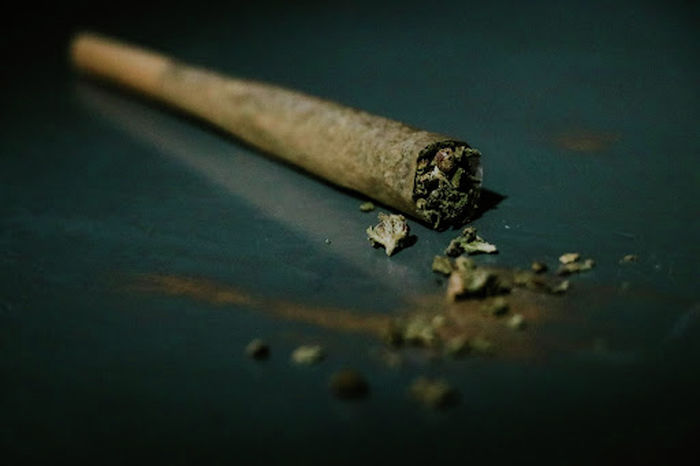The science of hangovers
With Freshers’ Week just around the corner, hangovers are unavoidable, so we might as well understand their scientific basis

Do you ever wake up groggy and confused, with a splitting headache and waves of nausea? Chances are, you’re hungover. Many of us love a party or a night out, but the consequences the following day can be insufferable.
The human body is primed to keep us alive and healthy, whilst alcohol is primed to do the exact opposite. The unpleasantness of a hangover is there for a reason: to stop you from drinking too much, too often.
Typically, hangovers occur after medium to high alcohol consumption levels, and begin roughly 10 hours after the peak of blood alcohol content — although this can vary with sex, weight, and genetic factors. They can last from a few hours to over a day and are actually just a milder version of withdrawal.
So, what happens when we get hungover? The consensus is not yet clear, largely because the symptoms vary so much from person to person. However, there are a few notable components that can truly punish an evening of frivolity and decadence.
The first problem is the excessive build-up of acetaldehyde, a toxic substance formed during the breakdown of alcohol. Acetaldehyde builds up when alcohol breakdown occurs more slowly. This can be due to genetic factors, such as a mutation in the enzyme aldehyde dehydrogenase (common in those of Asian descent), or because the body can’t keep up with the intense rate of consumption. The build-up of acetaldehyde results in nausea, a rapid heartbeat, sweating, and flushing.
There are a few notable components that can truly punish
Similar effects are observed with the build-up of methanol (a product of sugar fermentation), potentially explaining why sweet cocktails give worse hangovers than clear spirits. Additionally, dark liqueurs like whisky or red wine will give you a worse hangover due to their high concentration of congeners — chemical by-products of fermentation. This also explains why mixing drinks isn’t the best idea (so try to remember this next time you’re having a boogie in Revs…).
Moreover, alcohol stimulates the release of GABA, a neurotransmitter in the brain responsible for inhibition. While this makes you feel more relaxed in the short-term, after heavier consumption this can lead to a loss of consciousness, reduced judgement, and an inability to make new memories.
Alcohol also suppresses glutamate, an excitatory neurotransmitter. To counter this, your body increases glutamate production after alcohol consumption ends, leading to light and sound sensitivity, and headaches. The latter is also linked to dehydration — alcohol blocks a hormone that helps your body retain water. Without this hormone, the kidneys send all water to the bladder rather than to the body’s tissues that need it.
Don’t drink on an empty stomach
Another key effect of alcohol is inflammation of the blood vessels and gut, leading to both physical and emotional hangover symptoms. Dilated blood vessels in the brain cause headaches, while damaged stomach and intestine lining can result in diarrhoea and feelings of nausea. Inflammation in the brain may also lead to emotional effects such as irritation, mood changes, memory deficits and cognitive impairment.
Now that we know why it all happens – how do you prevent it? The most obvious option is to drink less. However, assuming rational thinking goes out the window as soon as you leave your supo, we can cross that one out, so the next best thing is to pace your drinks to allow your body to metabolise the alcohol. Drink water and other non-alcoholic beverages in between the spirits to stay hydrated and chug more water right before you go to sleep (which is also very important in minimising a hangover in itself!). Don’t drink on an empty stomach, as food helps slow down the rate of alcohol absorption.
If all that fails and you’ve had too much, what next? While the only thing that can cure a hangover is time, you can manage your symptoms. Anti-inflammatories such as ibuprofen reduce inflammation (clearly); sports drinks or Berocca replenish your body with vitamins and electrolytes; carbohydrate-rich food or fruit juices raise blood sugar; and caffeine will decrease headaches and feelings of grogginess (but dehydrates you further – so make sure to chug that water while you’re at it).
Clearly, hangovers are extremely unappealing and best avoided. However, the temptation of a 2-for-1 happy hour is sometimes just too strong – so go for it, if you so wish. Just don’t tell us we didn’t warn you.
 Comment / Cambridge students are too opinionated 21 April 2025
Comment / Cambridge students are too opinionated 21 April 2025 Comment / Does the AI revolution render coursework obsolete?23 April 2025
Comment / Does the AI revolution render coursework obsolete?23 April 2025 Comment / Cambridge’s tourism risks commodifying students18 April 2025
Comment / Cambridge’s tourism risks commodifying students18 April 2025 News / News in brief: campaigning and drinking20 April 2025
News / News in brief: campaigning and drinking20 April 2025 Interviews / Meet the Chaplain who’s working to make Cambridge a university of sanctuary for refugees20 April 2025
Interviews / Meet the Chaplain who’s working to make Cambridge a university of sanctuary for refugees20 April 2025






